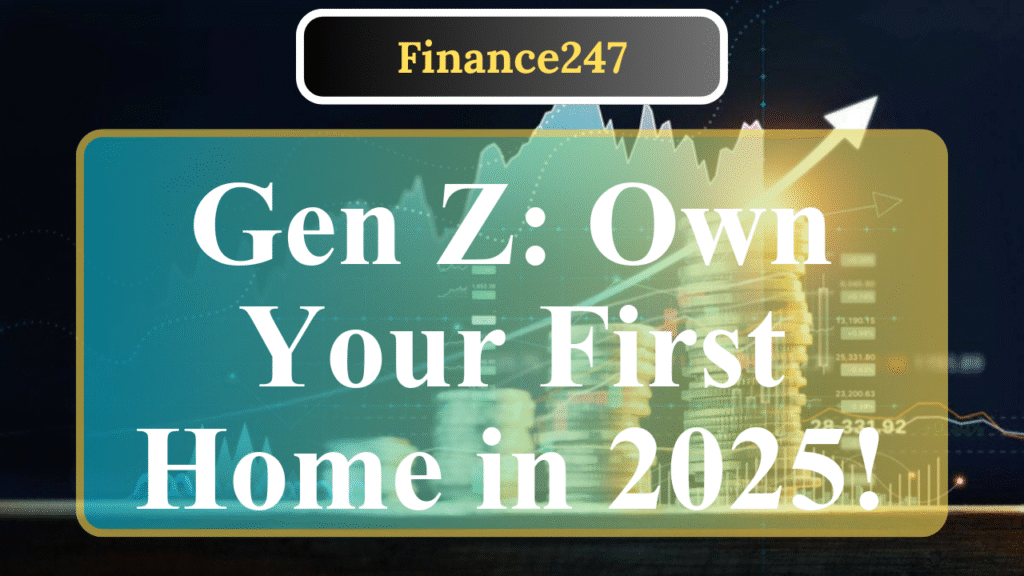Gen Z faces unique challenges in today’s housing market, but first-time homebuyer loans can ease the path to homeownership. This article explores six top loan options for 2025, including FHA, VA, USDA, and conventional loans, highlighting low down payments, flexible credit requirements, and assistance programs tailored for young buyers.
Top Mortgage Options for Gen Z First-Time Homebuyers
Navigating the housing market as a Gen Z buyer—born between 1997 and 2012—can feel daunting with median home prices hovering around $422,000 and mortgage rates near 7%, according to the National Association of Realtors. Fortunately, first-time homebuyer loans offer affordable pathways to homeownership with low down payments, lenient credit requirements, and assistance programs. Here are six of the best loan options for Gen Z in 2025, designed to make your dream of owning a home a reality.
1. FHA Loans: Flexible Credit, Low Down Payments
FHA loans, insured by the Federal Housing Administration, are a go-to for first-time buyers with limited savings or lower credit scores. These loans require just 3.5% down for credit scores of 580 or higher, or 10% for scores as low as 500. However, borrowers must pay mortgage insurance premiums (MIP), including an upfront fee and ongoing monthly payments, which can increase costs. Refinancing later can remove MIP, offering long-term savings. FHA loans are ideal for Gen Z buyers with credit challenges or minimal savings, available through lenders like Guild Mortgage, which offers flexible credit terms.
2. VA Loans: No Down Payment for Military Members
Backed by the Department of Veterans Affairs, VA loans are a standout for eligible Gen Z veterans, active-duty service members, and surviving spouses. They require no down payment, no monthly mortgage insurance, and often feature lower interest rates than conventional loans. While there’s a one-time funding fee, the savings are significant. Most VA lenders, like PenFed Credit Union, require a minimum credit score of 640. With 26% of older Gen Z (ages 19–27) already owning homes, VA loans are a powerful tool for military-affiliated buyers.
3. USDA Loans: Zero Down in Rural Areas
USDA loans, issued through the U.S. Department of Agriculture’s Rural Development Guaranteed Housing Loan Program, offer 100% financing with no down payment for eligible rural and suburban buyers. Income limits apply, varying by region, and credit scores of 640 or higher qualify for streamlined processing. These loans suit Gen Z buyers eyeing affordable markets like the Midwest or South, where housing costs are lower, as noted in a 2024 Realtor.com report. Lenders like New American Funding support USDA loans with competitive terms.
4. Conventional 97 Loans: Low Down Payment with Flexibility
Conventional 97 loans, backed by Fannie Mae, allow first-time buyers to put down just 3% on a single-family home. Requiring a minimum credit score of 620, these loans include private mortgage insurance (PMI), which can be canceled once 20% equity is built, unlike FHA’s MIP. A HUD-approved homeownership education course is mandatory, equipping Gen Z with essential knowledge. Ally Bank offers these loans with no origination or underwriting fees, enhancing affordability.
5. Fannie Mae HomeReady and Freddie Mac Home Possible Loans: Tailored for Low-Income Buyers
These conventional mortgage programs are designed for low- to moderate-income first-time buyers, requiring only 3% down and accepting credit scores as low as 620. They allow gift funds or roommate income for down payments, making them ideal for Gen Z buyers with limited personal savings. Homebuyer education is required, and PMI can be canceled with sufficient equity. Lenders like Bank of America offer these loans with grants up to $10,000 for down payments or closing costs.
6. Good Neighbor Next Door Program: Deep Discounts for Public Servants
Offered by HUD, the Good Neighbor Next Door program provides a 50% discount on homes in revitalization areas for teachers, law enforcement officers, firefighters, and EMTs. Eligible Gen Z buyers must commit to living in the home for three years and purchase a HUD-listed property. Financing with an FHA loan reduces the down payment to as low as $100. This program is perfect for young public service professionals ready to invest in community-focused areas. Check HUD’s Special Programs site for listings.
Additional Tips for Gen Z Buyers
Gen Z buyers, who make up just 3% of U.S. homebuyers per a 2024 National Association of Realtors report, often face financial hurdles like student debt or high debt-to-income ratios (DTI). To qualify, aim for a DTI below 43%, pay down debts, and use home affordability calculators to estimate budgets. Down payment assistance programs, like New York’s HomeFirst offering up to $100,000, can cover upfront costs. Shop around for lenders like Chase or Rocket Mortgage, which provide low-down-payment options and grants. Pre-approval is key to understanding your borrowing power and strengthening offers in competitive markets like Salt Lake City or Indianapolis, popular among Gen Z per The New York Times.
Disclaimer: This article is for informational purposes only and does not constitute financial advice. Consult a licensed mortgage professional or financial advisor before making decisions. Information is sourced from reputable websites, reports, and industry insights. Always verify program eligibility and terms with lenders or housing agencies.


